Uncategorized
-
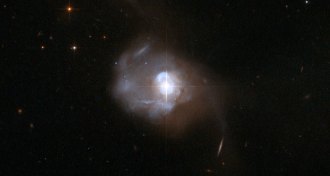 Astronomy
AstronomyNearby quasar may be home to dynamic duo
A pair of black holes left over from a galaxy collision might live in the nearest quasar to Earth.
-
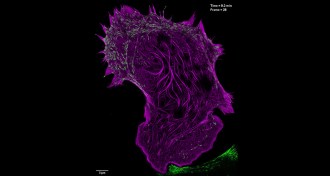 Life
LifeNew microscope techniques give deepest view yet of living cells
Two new microscopy techniques are helping scientists see smaller structures in living cells than ever glimpsed before.
-
 Science & Society
Science & SocietyHow dollhouse crime scenes schooled 1940s cops
In the 1940s, Frances Glessner Lee’s dollhouse murder dioramas trained investigators to look at crime scenes through a scientific lens.
-
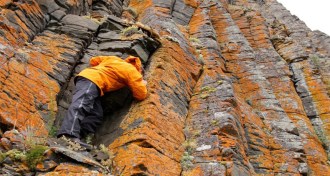 Earth
EarthVolcanic activity convicted in Permian extinction
Precision dating confirms that Siberian volcanic eruptions could have triggered the Permian extinction.
-
 Quantum Physics
Quantum PhysicsNew experiment verifies quantum spookiness
A new experiment provides the most robust proof that quantum mechanics doesn’t follow the rules we take for granted in everyday life.
By Andrew Grant -
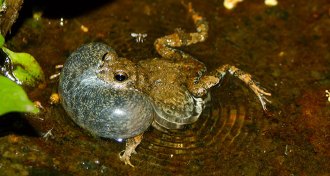 Animals
AnimalsDecoy switches frogs’ mating call preference
A female túngara frog may switch her choice between two prospective mates when presented with a third, least attractive option.
-
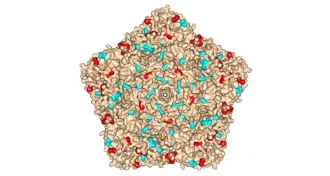 Health & Medicine
Health & MedicineVaccinated man excretes live poliovirus for nearly 3 decades
For almost 30 years, a man with an immune deficiency has been shedding poliovirus strains that have evolved from the version he received in a vaccine.
-
 Psychology
PsychologyPsychology results evaporate upon further review
Less than half of psychology findings get reproduced on second tries, a study finds.
By Bruce Bower -
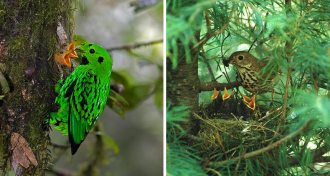 Animals
AnimalsTropical songbirds get their growth spurt late
Tropical songbirds are late bloomers, but that delayed development may give them an advantage after leaving the nest.
-
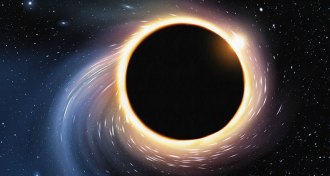 Physics
PhysicsHawking proposes solution to black hole problem
Light sliding along the boundary of a black hole encodes everything that ever fell inside, suggests Stephen Hawking in a new but incomplete proposal.
By Andrew Grant -
 Genetics
GeneticsDNA architecture, novel forensics offer new clues
Going from theory to practice is always rife with problems, be it shifting from the sequence of DNA’s letters to observing its dynamic machinations or from an identity marker in the lab to a piece of courtroom evidence.
By Eva Emerson -
 Humans
HumansMoon bounces, bad spider leaders and more reader feedback
Readers debate faith's role in evolution, compare politicians to spiders and more.